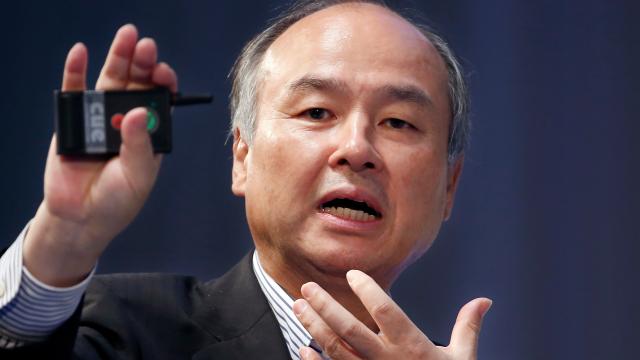On October 2, Saudi citizen, US resident, and journalist in self-imposed exile Jamal Khashoggi entered the Saudi consulate in Istanbul, reportedly wary of the potential consequences of entering a facility controlled by a dictatorial government he frequently criticised. He is now presumed dead at the hands of Saudi personnel, who Turkish officials speaking under the cover of anonymity have claimed were recorded torturing and murdering him inside the embassy.
As a result, executives from numerous firms including Google, JPMorgan Chase, Uber and Virgin Group have publicly distanced themselves from Saudi Arabia and its brutal ruling monarchy, whose heir to the throne Crown Prince Mohammed bin Salman has been trying to lure foreign investment as part of a moonshot, PR-friendly plan to transform the nation into a regional tech and logistics giant.
But as The New York Times reported on Wednesday, Japanese tech giant SoftBank Group — which received a $US45 billion ($63 billion) commitment for its tech-centric Vision Fund from the Saudi sovereign wealth fund — and its CEO Masayoshi Son seem to be waiting to see just how much blood is in the water.
According to the Times, Son has not yet reached a final decision on whether he will mirror other executives dropping out of next week’s Future Investment Initiative in Riyadh, while chief operating officer Marcelo Claure said on Tuesday the company was “monitoring” the situation:
“At this point in time, we, like most companies that have a relationship with Saudi Arabia, are watching developments and seeing where this goes,” Mr. Claure told a group of reporters at a tech industry event in San Jose, Calif. “There are developments pretty much every hour these days.”
Mr. Son has pointed out to business associates that the SoftBank Vision Fund had a responsibility to the Saudi citizens who had entrusted his company with $US45 ($63) billion from their kingdom’s sovereign wealth fund, according to SoftBank officials who spoke on condition of anonymity because they were not authorised to speak publicly. At the same time, these officials said, he has conveyed to executives at companies in the Vision Fund’s portfolio that they should not feel obligated to follow his lead, and must do what feels right to them.
According to the Times, the Vision Fund operates by receiving periodic transfers from partners after individual deals are signed off on by participants; of its $US92 billion ($129 billion) in capital, only $US27 billion ($38 billion) has been spent, including $US12 billion ($17 billion) in Saudi money.
The fund has performed very well, and before the scandal, there was talk of starting a second. TechCrunch cited reports that Claure also said there was “no certainty” of another fund, while the Times reported that a source involved in decision-making processes at SoftBank said executives have mulled no longer accepting Saudi money in the future in private.
That leaves the future of SoftBank’s relationship with the Saudis, which is a massive slice of the $US11 billion ($15 billion) that The Wall Street Journal recently reported bin Salman has invested in US startups since mid-2016, unclear.
As the Times noted, pressure on Son is not coming from just those concerned about Khashoggi’s disappearance: He vowed to Donald Trump, whose administration has doubled down in its defence of the Saudis and their precious arms deals with the US, to “use Vision Fund capital to invest $50 billion [$AU70 billion] in the United States and create 50,000 new jobs” shortly before Trump was sworn in. (Later reports suggested that much of the Vision Fund money was slated to go into larger firms instead of startups.)
Seeing as it now seems impossible that Khashoggi’s disappearance was not in fact an orchestrated murder ordered by high-ranking Saudis, it doesn’t seem like there is much left to wait and figure out.
Not that this couldn’t have easily been foreseen and avoided in the first place: The crown prince has been displaying his autocratic streak ever since assuming his place in the line to the throne, directing a brutal war in Yemen; taking sweeping power grabs over security forces, the media and political institutions; and locking up hundreds of real or imagined rivals without due process.
SoftBank isn’t the only company remaining conspicuously mute about the matter: Amazon CEO Jeff Bezos, who is reportedly working on plans to open Amazon Web Services data centres in Saudi Arabia, has remained publicly mum about the issue despite owning The Washington Post — where Khashoggi was a columnist.
Gizmodo has reached out to SoftBank for comment, but had not heard back at time of writing.
